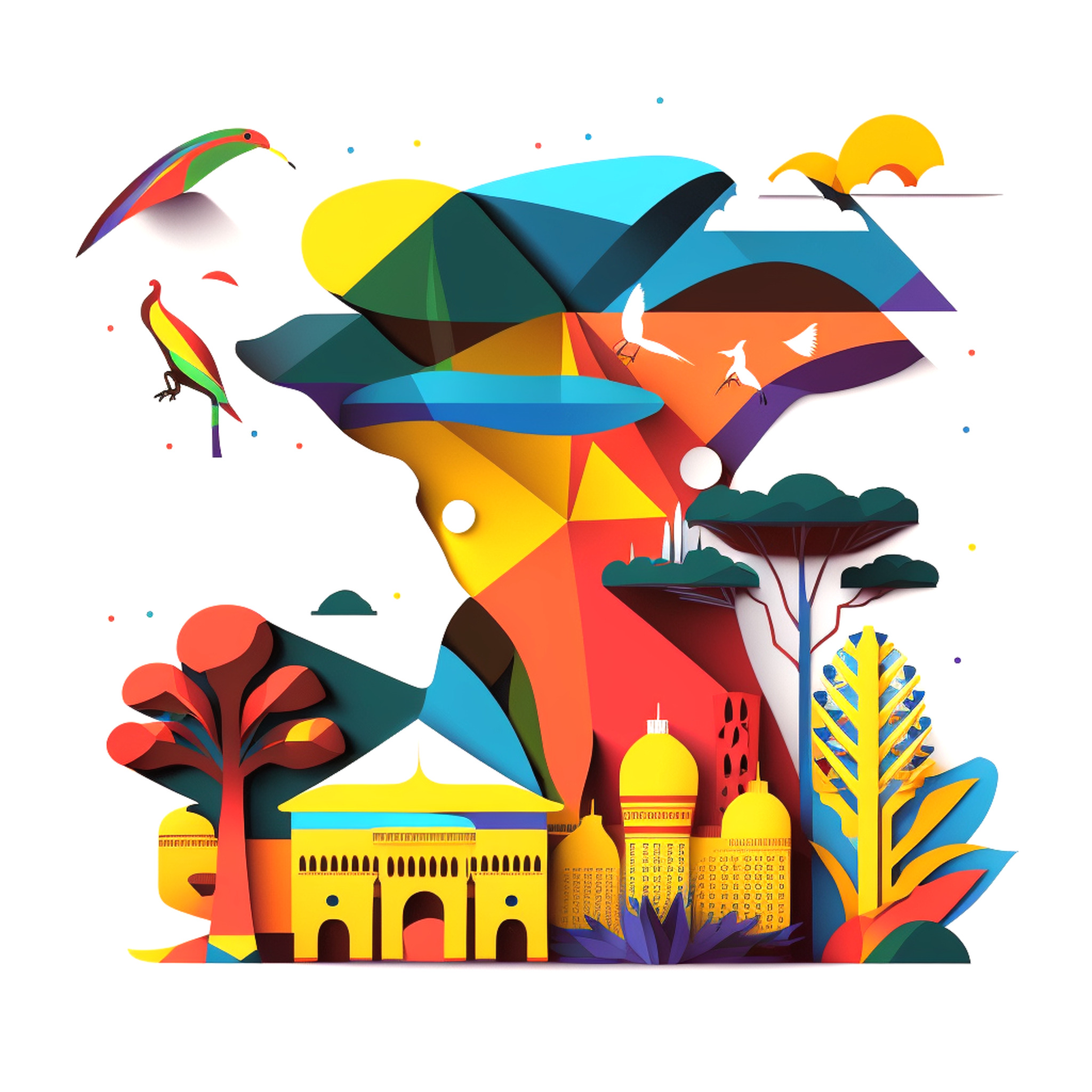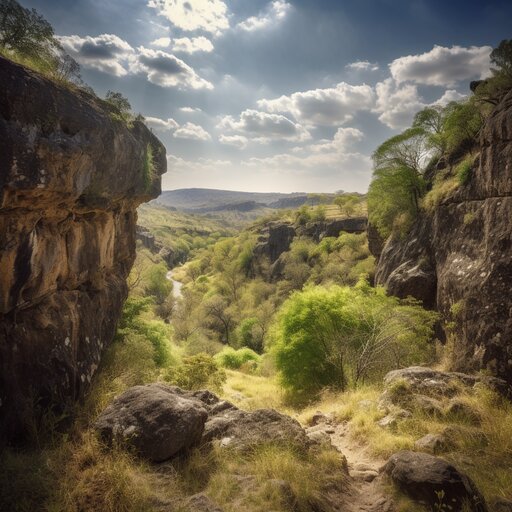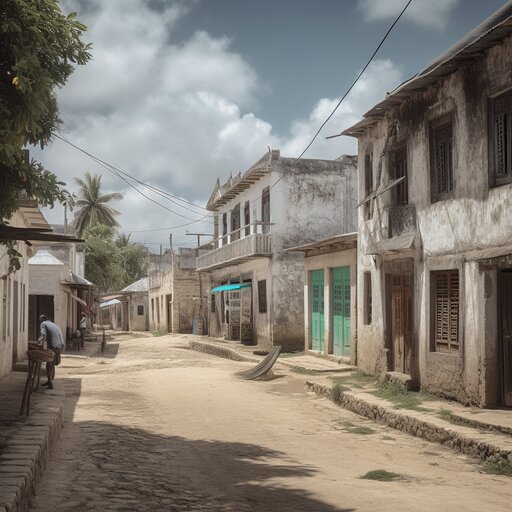 1.
1. Kununua aiskrimu
Buying ice cream
Ni siku ya joto ya kiangazi.
It's a hot summer day.
Kijana anaenda dukani kununua aiskrimu.
A boy goes to the ice cream shop.
Anataka kununua aiskrimu.
He wants to buy an ice cream.
Anaona aina nyingi tofauti.
He sees many different flavors.
Chokoleti, vanilla, stroberi na zaidi.
Chocolate, vanilla, strawberry, and more.
Hawezi kuamua.
He can't decide.
Anamuuliza muuzaji ushauri.
He asks the saleswoman for advice.
Anampendekeza aina ya embe.
She recommends the mango flavor.
Anaijaribu na anapenda.
He tries it and he likes it.
Ananunua aiskrimu ya embe.
He buys the mango ice cream.
Anafurahia chaguo lake.
He is happy with his choice.
Anarudi nyumbani na kufurahia aiskrimu yake.
He goes home and enjoys his ice cream.
Ni siku nzuri.
It's a beautiful day.
 2.
2. Sentensi za kiwango cha A1 kwa matumizi ya vitenzi katika wakati wa sasa
A1 level sentences demonstrating the use of verbs in the present tense
Ninakula tofaa.
I am eating an apple.
Unakwenda shuleni.
You are going to school.
Anakunywa maji.
He is drinking water.
Yeye analala.
She is sleeping.
Tunacheza soka.
We are playing football.
Mnasoma kitabu.
You are reading a book.
Wanasakata densi.
They are dancing.
Ninaangalia filamu.
I am watching a movie.
Unaimba wimbo.
You are singing a song.
Anapika chakula.
He is cooking the meal.
Yeye anaogelea.
She swims.
Sisi tunacheka.
We laugh.
Nyinyi mnakimbia.
You (plural) run.
Wao wanasoma.
They study.
Mimi nachora.
I draw.
Wewe unasema.
You speak.
Yeye anaandika.
He writes.
Yeye anasikiliza muziki.
She listens to music.
Sisi tunasafiri kwa gari.
We drive a car.
Nyinyi mnacheza.
You are dancing.
 3.
3. Mazungumzo: Salimu mtu unayemjua
Conversation: Greet someone you know
Habari Peter, hujambo?
Hello Peter, how are you?
Siku nyingi sijakuona.
I haven't seen you for a long time.
Unayo siku njema?
Are you having a good day?
Mwisho wa juma wako ulikuwaje?
How was your weekend?
Ulienda wapi?
What did you do?
Ilikuwa nzuri?
Was it nice?
Nafurahi kukutana nawe.
It's nice to see you.
Nangojea mkutano wetu ujao kwa hamu.
I look forward to our next meeting.
Tuonane baadaye!
See you later!
 1.
1. Kupokea mtindo wa maisha wenye afya zaidi
Adopt a healthier lifestyle
Mehmet kila wakati alikuwa anakula pizza na chakula cha haraka.
Mehmet has always eaten pizza and fast food.
Lakini sasa anataka kula kwa afya zaidi.
But now he wants to eat healthier.
Anakwenda sokoni na kununua mboga na matunda.
He goes to the market and buys vegetables and fruit.
Anapika nyumbani na hali chakula cha haraka tena.
He cooks at home and doesn't eat fast food anymore.
Mehmet pia anaanza kufanya mazoezi.
Mehmet also starts exercising.
Anakwenda kwenye gym.
He goes to the gym.
Anakimbia kwa saa moja kila siku.
He runs for an hour every day.
Anajisikia vizuri zaidi na ana nguvu zaidi.
He feels better and has more energy.
Marafiki zake wanagundua mabadiliko.
His friends notice the change.
Wanasema: "Mehmet, unakaa vizuri!"
They say: "Mehmet, you look good!"
Mehmet anafurahia mtindo wake mpya wa maisha.
Mehmet is happy with his new lifestyle.
Anasema: "Najihisi kuwa na afya bora na mwenye nguvu zaidi."
He says: "I feel healthier and stronger."
Mehmet amechukua mtindo wa maisha wa afya zaidi na anafurahia.
Mehmet has adopted a healthier lifestyle and is happy.
 2.
2. Sentensi za A2 zinazoonyesha matumizi ya viwakilishi katika muktadha mbalimbali
A2 sentences illustrating the use of personal pronouns in various contexts
Yeye hupika pasta mara nyingi kwa sababu anapenda Italia.
She often cooks pasta because she loves Italy.
Tulimkutana naye kwenye bustani na tukapata wakati mzuri.
We met him in the park and had a great time.
Mnaweza kututembelea mkitaka.
You are welcome to visit us.
Je, naweza kukusaidia kupata kitabu?
Can I help you find the book?
Wanaangalia filamu kwenye sinema.
They are watching a movie in the cinema.
Anapenda kofia yake kwa sababu ni yenye rangi.
He likes her hat because it is colorful.
Yeye hutembea na mbwa wake.
She is walking with her dog.
Tumepanga safari kwenda Ugiriki.
We have planned a trip to Greece.
Tafadhali, unaweza kunipa chumvi?
Could you please pass me the salt?
Yeye anatengeneza gari lake kwa sababu hawezi kufanya hivyo.
He is fixing her car because she can't.
Wao wanapenda kazi yao kwa sababu ni ya ubunifu.
They love their job because it is creative.
Je, naweza kukuletea glasi ya maji?
Can I bring you (formal) a glass of water?
Yeye humpea ua kila siku.
He gives her a rose every day.
Watakuja kwetu kesho.
They are coming to us tomorrow.
Unaweza kumpelekea ujumbe?
Can you deliver the message to him?
Anatusimulia hadithi yenye kuchekesha.
She tells us a funny story.
Nyie ni karibu daima.
You are always welcome.
Je, naweza kukupa kitabu?
Can I give you the book?
Yeye huwaandikia barua.
He writes them a letter.
Alinipa zawadi.
She gave me a gift.
 3.
3. Mazungumzo: Majadiliano kuhusu ratiba yako ya kila siku na unachofanya wakati wa mchana
Conversation: Discussion about your daily routine and what you do during the day
Kila asubuhi naamka saa moja.
I wake up every morning at seven o'clock.
Baada ya hapo, nasugua meno yangu na kuoga.
Then, I brush my teeth and take a shower.
Nakula kifungua kinywa na kunywa kahawa ili kuanza siku.
I have breakfast and drink coffee to start the day.
Kisha, naenda kazini na kufanya kazi hadi saa kumi na moja.
Then I go to work and work until five o'clock.
Baada ya kazi, naenda kwenye gym.
After work, I go to the gym.
Kwa kawaida napika chakula cha jioni na kisha kutazama televisheni.
I usually cook my dinner and then watch TV.
Kabla ya kulala, nasoma kitabu.
Before going to bed, I read a book.
Kawaida huenda kulala saa nne usiku.
I usually go to bed around ten o'clock.
Hii ni ratiba yangu ya kila siku.
This is my daily routine.
 1.
1. Mpango na utekelezaji wa mradi wa ukarabati wa nyumba
Planning and implementing a home renovation project
Jina langu ni Sarah na naishi Seattle.
My name is Sarah and I live in Seattle.
Shauku yangu ni kukarabati nyumba za kale.
My passion is renovating old houses.
Hivi karibuni nilinunua nyumba ya kale ya Victoria.
I recently bought an old Victorian house.
Ilikuwa katika hali mbaya, lakini niliona uwezekano.
It was in a bad condition, but I saw potential.
Nilianza kupanga ukarabati.
I started planning the renovation.
Kwanza nilitengeneza orodha ya kazi zinazohitajika.
First, I made a list of necessary works.
Kisha nikaanza kutafuta mafundi.
Then, I started looking for craftsmen.
Haikuwa rahisi kupata watu sahihi.
It wasn't easy to find the right people.
Lakini sikukata tamaa na mwishowe nilipata timu nzuri.
But I didn't give up and finally found a great team.
Tulianza kukarabati nyumba.
We began to renovate the house.
Ilikuwa kazi nyingi, lakini tulikabiliana na changamoto.
It was a lot of work, but we took up the challenge.
Kila siku niliona maboresho na ilikuwa inaridhisha sana.
Every day, I saw improvements and it was very fulfilling.
Mwishowe, nyumba ilikamilika na nilijivunia tulichofanikisha.
Finally, the house was finished, and I was proud of what we had accomplished.
Nyumba ya kale ya Victoria sasa ilikuwa nyumba nzuri.
The old Victorian house was now a beautiful home.
Ilikuwa mchakato mrefu na wenye kuchosha, lakini ilikuwa inastahili.
It was a long and exhausting process, but it was worth it.
Ninatarajia kuanza mradi wangu wa ukarabati ujao.
I am looking forward to starting my next renovation project.
 2.
2. Sentensi za B1 zinazoonyesha matumizi sahihi ya viwakilishi vya umiliki
B1 sentences demonstrating the correct use of possessive pronouns
Wema wako ndio ninachokipenda zaidi kwako.
Your kindness is what I appreciate most about you.
Nyumba yao ya zamani ina mvuto wa kipekee.
Your old house has a special charm.
Njia yake ya kuandika ni ya kipekee.
His way of writing is very unique.
Bibi yetu alituachia mkufu huu.
Our grandmother left us this necklace.
Shauku yake kwa sanaa inaambukiza.
His enthusiasm for art is infectious.
Hicho ndicho chakula anachokipenda zaidi mjini.
This is her favorite restaurant in the city.
Ukweli wako unastahili heshima.
Your honesty is admirable.
Nyumba yetu ina mtazamo mzuri wa bahari.
Our house has a beautiful view of the sea.
Ubunifu wake ni wa kushangaza kweli.
Her creativity is really impressive.
Baba yake ana maktaba kubwa.
Her father has a large library.
Rafiki yangu amepoteza funguo zake.
My friend lost his keys.
Mwalimu wake ni mkali sana.
Her teacher is very strict.
Kaka yako ana hali nzuri ya ucheshi.
Your brother has a great sense of humor.
Hii ni gari letu jipya.
This is our new car.
Viatu vyake ni vya kisasa sana.
Her shoes are very stylish.
Baba yangu alijenga meza hii mwenyewe.
My father built this table himself.
Paka wake ni mtamu sana.
Her cat is very cute.
Mama yako anapika vizuri sana.
Your mother cooks excellently.
Ndugu zake ni wa michezo sana.
His siblings are very athletic.
Hicho ndicho kipande anachokipenda zaidi.
This is her favorite movie.
 3.
3. Mazungumzo: Majadiliano kuhusu filamu na vipindi vyako vya televisheni unavyopenda, ikiwa ni pamoja na aina na waigizaji
Conversation: Discussion about your favorite movies and TV series, including genres and actors
Aina gani ya filamu na vipindi vya televisheni unapenda kuangalia?
What kind of movies and TV series do you prefer to watch?
Napenda sana filamu za sayansi ya kubuni na za hatua.
I really like science fiction and adventure movies.
Unayo mwigizaji unayempenda zaidi au mwigizaji wa kike?
Do you have a favorite actor or actress?
Ndiyo, mimi ni shabiki mkubwa wa Leonardo DiCaprio.
Yes, I am a big fan of Leonardo DiCaprio.
Unapendekeza vipindi gani vya televisheni zaidi?
Which TV series do you recommend the most?
Napendekeza "Stranger Things", kipindi ni cha kusisimua sana.
I recommend 'Stranger Things', the series is very exciting.
Filamu yako unayoipenda zaidi ni ipi katika historia yote?
What is your all-time favorite movie?
Filamu ninayoipenda zaidi ni "The Godfather".
My favorite movie is 'The Godfather'.
Pia napenda filamu za kielimu, hasa zile zinazohusiana na asili na mazingira.
I also like documentaries, especially those that deal with nature and environment.
 1.
1. Kazi ya mwanzilishi katika maendeleo ya teknolojia za nishati mbadala
Pioneering work for the breakthrough in renewable energy technologies
Mimi ni Zainab, mwanasayansi mwenye ubunifu kutoka Kuala Lumpur, Malaysia.
I am Zainab, an inventive scientist from Kuala Lumpur, Malaysia.
Ndoto yangu ni kuwezesha dunia kwa nishati endelevu kwa kuendeleza teknolojia mpya.
My vision is to power the world with sustainable energy by developing new technologies.
Siku moja, niligundua njia ya kutengeneza seli za solar kwa ufanisi zaidi na kwa gharama nafuu.
One day, I discovered a way to manufacture solar cells more efficiently and cost-effectively.
Hii ingefanya iwe rahisi kwa watu wengi duniani kupata nishati safi.
This would make access to clean energy easier for many people around the world.
Hata hivyo, kazi ilikuwa ngumu na ilihitaji miaka mingi ya utafiti na maendeleo makubwa.
However, the work was challenging and required many years of intense research and development.
Baada ya majaribio mengi na maboresho, tulifanikiwa kupeleka teknolojia sokoni.
After countless experiments and improvements, we were able to bring the technology to market maturity.
Mafanikio yalipatikana wakati kampuni kubwa ya nishati ilionesha maslahi katika teknolojia yetu.
The breakthrough came when a major energy company showed interest in our technology.
Waliwekeza katika kampuni yetu na kutusaidia kuongeza uzalishaji.
They invested in our company and helped us increase production.
Vyanzo vyetu vya nishati vinavyoweza kurejeshwa vilitumika duniani kote na kusaidia kupunguza utoaji wa kaboni.
Our renewable energy sources were used worldwide and contributed to reducing carbon emissions.
Leo, mimi ni fahari kwamba nimetoa mchango katika kufanya dunia kuwa mahali pazuri zaidi.
Today, I am proud to have contributed to making the world a better place.
Lakini safari haiishii hapa.
But the journey doesn't end here.
Nina azimio la kuendelea kuendeleza teknolojia za ubunifu zitakazoimarisha maisha yetu na kulinda sayari yetu.
I am determined to continue developing innovative technologies that improve our lives and protect our planet.
 2.
2. Sentensi za B2 kuhusu jukumu la viwakilishi
B2 sentences on the role of demonstrative pronouns
Miti ile unayoiona nyuma ni ya karne nyingi.
Those trees that you see in the background are several centuries old.
Picha ile inayoning'inia pembeni inatoka enzi ya Renaissance.
This painting hanging in the corner originates from the Renaissance.
Vitabu hivi hapa ni msingi wa utafiti wangu.
These books here form the foundation for my research.
Ndege wale kule kwenye kizimba ni spishi adimu.
Those birds over there in the cage are rare species.
Maua haya uliyopanda yamechanua vizuri.
These flowers that you planted bloomed wonderfully.
Sanamu zile kule zinatoka karne ya 18.
Those sculptures over there are from the 18th century.
Mji huu ninamoishi una historia tajiri.
This city where I live has a rich history.
Mwanaume yule kule ni mwandishi maarufu.
That man over there is a famous writer.
Mlima huu unaouona ni mrefu zaidi katika eneo hili.
This mountain you see is the highest in the region.
Hadithi unayosimulia ni ya kuvutia.
This story you are telling is fascinating.
Mawingu yale kule yanatabiri dhoruba.
Those clouds there announce a storm.
Daraja hili tunalovuka lilijengwa karne iliyopita.
This bridge we are crossing was built last century.
Shairi ulilolisoma limenigusa sana.
This poem you recited has deeply touched me.
Mto ule tuliouona jana ni maarufu sana.
That river we saw yesterday is very famous.
Maneno uliyosema yanakaa nami.
These words you said stay with me.
Meli ile kule ni ya zamani sana.
That ship out there is very old.
Mti wa apple huu hapa ulipandwa na babu yangu.
This apple tree here was planted by my grandfather.
Wimbo anaouimba ni mzuri sana.
That song she sings is very beautiful.
Uzoefu ulioufanya ni wa thamani sana.
This experience you had is very valuable.
Mlima ule unaonekana mbali ni maarufu kwa wapenzi wa kutembea.
That mountain seen in the distance is a popular hiking destination.
 3.
3. Mazungumzo: Shiriki safari zako za kusisimua na ujadili mikutano ya kitamaduni
Conversation: Share your travel adventures and discuss cultural encounters
Wakati wa safari yangu Thailand, nilikutana na mchanganyiko wa kuvutia wa mila na usasa.
During my trip to Thailand, I encountered a fascinating mix of tradition and modernity.
Je, umewahi kutembelea hekalu la kuvutia la Angkor nchini Cambodia?
Have you ever visited the fascinating temples of Angkor in Cambodia?
Ukirimwo wa watu wa Japan ulinigusa kwa kina.
The hospitality of the people in Japan deeply impressed me.
Umejionea uzoefu gani wa kitamaduni wa kipekee katika safari zako?
What extraordinary cultural experiences have you had on your travels?
Ujenzi wa kuvutia huko Dubai ni ladha halisi kwa macho.
The breathtaking architecture in Dubai is a feast for the eyes.
Je, umewahi kujionea mila za kipekee za kupika huko India?
Have you experienced the unique culinary traditions of India?
Safari yangu kwenye msitu wa mvua wa Peru ilikuwa ni mojawapo ya adventures.
My trek through the Peruvian rainforest was a real adventure.
Umetembelea nchi gani zilizokuwa na athari kubwa kwako?
Which countries have you visited that had a profound impact on you?
Kukutana na Maasai wa Kenya ilikuwa ni uzoefu uliobadilisha maisha yangu.
Meeting the Maasai in Kenya was a life-changing experience.
Safari sio tu zinafungua macho yetu, bali pia mioyo yetu kwa tamaduni mpya.
Traveling not only opens our eyes but also our hearts to new cultures.
 1.
1. Kuongoza mradi wa utafiti wa kiongozi katika uhandisi wa kijenetiki
Leading a groundbreaking research project in genetic engineering
Marta, mtaalamu wa genetics bora katika mji wa San Francisco, alikabiliwa na changamoto.
Marta, an outstanding geneticist in the vibrant city of San Francisco, was faced with a challenge.
Alikuwa akiwaongoza timu ya wanasayansi katika utekelezaji wa mradi wa utafiti wa kisasa wa kubadilisha jeni za mimea.
She led a team of scientists in conducting a cutting-edge research project on genetic modification of plants.
Walijaribu kubadilisha ngano ili iweze kukua katika hali kali za hewa.
They were trying to modify wheat so that it could grow in extreme climate conditions.
Marta alitumia masaa mengi kwenye maabara, akichambua mlolongo wa jeni na kurekebisha jeni.
Marta spent countless hours in the lab, analyzing genetic sequences and modifying genes.
Licha ya changamoto na kutokuwa na uhakika, daima alibaki na matumaini na azma.
Despite the challenges and uncertainty, she always kept her optimism and determination.
Alikuwa na imani thabiti kwamba kazi yake ilikuwa na uwezo wa kubadilisha dunia na kupambana na njaa na umaskini.
She firmly believed that her work had the potential to change the world and combat hunger and poverty.
Marta na timu yake walifanya kazi bila kuchoka, daima wakitafuta maendeleo makubwa.
Marta and her team worked tirelessly, always in search of the next breakthrough.
Walizidi vikwazo, wakasherehekea ushindi mdogo na kujifunza kila wakati.
They overcame setbacks, celebrated small victories, and constantly learned.
Baada ya miaka ya utafiti na majaribio mengi, hatimaye walipata mafanikio makubwa.
After years of research and countless experiments, they finally achieved a significant breakthrough.
Walikuwa wameumba aina ya ngano iliyo na mabadiliko ya jeni ambayo inaweza kustawi katika hali kali.
They had created a genetically modified wheat variety that could thrive in extreme conditions.
Marta alihisi mawimbi ya kujivunia na kutimiza wakati alipoona mafanikio ya kazi yake.
Marta felt a wave of pride and fulfillment as she saw the success of her work.
Utafiti wake ulikuwa na uwezo wa kusaidia mamilioni ya watu na kupambana na njaa duniani.
Her research had the potential to help millions of people and combat world hunger.
Alikuwa fahari kuwa sehemu ya kazi ya mapinduzi ambayo ilivunja mipaka ya kinachowezekana.
She was proud to be part of such groundbreaking work that pushed the boundaries of the possible.
Kwa hisia za matumaini na matarajio, Marta aliangalia kuelekea siku zijazo, akiwa tayari kwa changamoto zinazokuja njiani mwake.
With a sense of hope and optimism, Marta looked to the future, ready for the next challenges that would come her way.
 2.
2. Mazungumzo: Kuzungumzia uzoefu wako katika majukumu ya uongozi na usimamizi wa timu
Conversation: Discussing your experiences in leadership roles and team management
Katika jukumu langu kama kiongozi wa timu, niligundua haraka kuwa mawasiliano yenye ufanisi ni muhimu.
In my role as team leader, I quickly realized that effective communication is crucial.
Wakati mwingine ni lazima kufanya maamuzi magumu yanayoathiri timu nzima.
Sometimes it is necessary to make difficult decisions that affect the entire team.
Ilikuwa jukumu langu kuhamasisha timu huku nikihakikisha kazi inafanywa kwa ufanisi.
It was my job to motivate the team while ensuring that the work gets done effectively.
Nimejifunza kuwa kuelewa nguvu na udhaifu wa kila mmoja katika timu ni muhimu sana.
I learned that understanding the individual strengths and weaknesses of each team member is of great importance.
Wakati mwingine nililazimika kutatua migogoro ndani ya timu na kupata suluhisho la haki.
Sometimes I had to resolve conflicts within the team and find a fair compromise.
Kuendeleza utamaduni wa uwazi na kuunga mkono ilikuwa sehemu muhimu ya falsafa yangu ya uongozi.
Developing an open and supportive culture was an important part of my leadership philosophy.
Kuthamini mchango wa kila mtu na kuimarisha umoja ilikuwa ufunguo wa mafanikio yetu.
Appreciating each individual's contribution and fostering cohesion were keys to our success.
Pia nilitambua haja ya kutoa na kupokea maoni kwa mara kwa mara ili kukuza ukuaji na uboreshaji.
I also recognized the need to give and receive continuous feedback to promote growth and improvement.
Uzoefu wangu umenionyesha kuwa uongozi ni kuwahamasisha wengine kutoa bora wao.
My experience has shown me that leadership means inspiring others to give their best.
 1.
1. Uratibu wa jibu la kimataifa kwa shambulio kubwa la mtandao kwenye miundombinu muhimu
Coordination of a global response to a massive cyber attack on critical infrastructures
Ilikuwa ni usiku wa kimya na wenye nyota, wakati onyo za kutisha zilipoanza kuonekana kwenye skrini za vituo vya usalama duniani kote.
It was a quiet and starlit night when ominous warning messages began to appear on the screens of security centers around the world.
Mimi ni Jin-ho, mchambuzi wa usalama wa mtandao wa juu huko Seoul, na nilikuwa tu nimeweka kikombe changu cha kahawa chini wakati ishara ya kwanza ya onyo ilianza kuwaka kwenye skrini yangu.
I am Jin-ho, a high-ranking network security analyst based in Seoul, and I had just set down my coffee cup when the first warning signal started flashing on my monitor.
Katika sekunde chache, ilikuwa wazi kwangu kuwa hatukukabiliwa na tukio la kawaida la usalama.
Within a few seconds, it became clear to me that we were not dealing with an everyday security incident here.
Mshambuliaji asiyejulikana alikuwa akitekeleza shambulio lililopangwa vizuri kwenye miundombinu muhimu ulimwenguni.
An unidentified actor was conducting a highly coordinated attack on critical infrastructures worldwide.
Kadri kiwango cha shambulio kilivyokuwa wazi, niliwaita wenzangu huko Tokyo, Washington, na London kuratibu mpango wa kimataifa wa kujibu.
As the scope of the attack became more and more clear, I called my colleagues in Tokyo, Washington, and London to coordinate a global response plan.
Changamoto ilikuwa bila mfano, lakini ilibidi tuzingatie kuchukua usukani katika mgogoro huu wa kimataifa.
The challenge was unprecedented, but we had to focus on taking the helm in this global crisis.
Katikati ya machafuko, tulijihusisha na wataalam na serikali duniani kote kujadili hatua zijazo na kuratibu hatua ya ufanisi dhidi ya shambulio.
Amid the chaos, we connected with experts and governments around the world to discuss the next steps and coordinate an effective countermeasure.
Shambulio hili kubwa linasisitiza haja ya nchi kushirikiana ili kufanya nafasi ya mtandao iwe salama zaidi.
This massive attack underscores the need for countries to work together to make cyberspace safer.
 2.
2. Mazungumzo: Kubadilishana ufahamu wa wataalam kuhusu diplomasia ya kimataifa na geopolitiki
Conversation: Exchange of expert insights on international diplomacy and geopolitics
Geopolitiki ni nidhamu tata na inayobadilika ambayo inachunguza mwingiliano wa nguvu, nafasi na muda kwenye ngazi ya dunia.
Geopolitics is a complex and dynamic discipline that examines the interaction of power, space, and time on a global scale.
Ungependa kutoa tathmini gani kuhusu mandhari ya geopolitiki ya sasa?
How would you assess the current geopolitical landscape?
Kutokana na mvutano wa hivi karibuni na mabadiliko ya geopolitiki, dunia inaonekana kuwa katika mabadiliko endelevu.
Considering recent tensions and geopolitical changes, the world seems to be subject to constant change.
Diplomasia inachukua nafasi gani katika muktadha huu wa mabadiliko endelevu?
What role does diplomacy play in this constantly changing context?
Diplomasia inafanya kazi kama zana msingi ya kuhamasisha mazungumzo, kutatua mizozo, na kudumisha uhusiano wa kimataifa.
Diplomacy serves as a fundamental tool for promoting dialogue, resolving conflicts, and maintaining international relations.
Je, unaweza kuchambua mgogoro wa geopolitiki wa sasa na kutoa tathmini yako?
Could you analyze a current geopolitical conflict and give your assessment?
Mvutano unaoendelea kati ya madola makubwa una uwezo wa kuvuruga uwiano wa geopolitiki kwa kina.
The ongoing tensions between the major powers have the potential to seriously disrupt the geopolitical balance.
Ni vipi hatua za kidiplomasia zinaweza kusaidia kupunguza mvutano kama huo?
How could diplomatic measures contribute to easing such tensions?
Kupitia mazungumzo yenye tija na nia ya kushirikiana, wanadiplomasia wanaweza kuweka msingi wa siku zijazo zenye amani.
Through constructive negotiations and a willingness to cooperate, diplomats can lay the foundation for a more peaceful future.


























